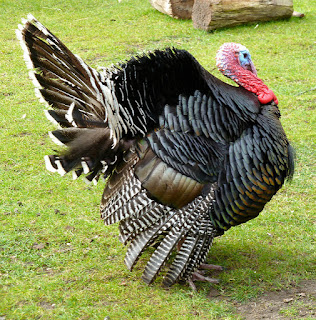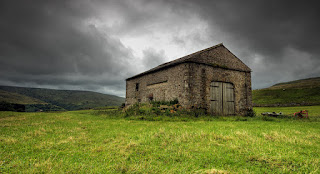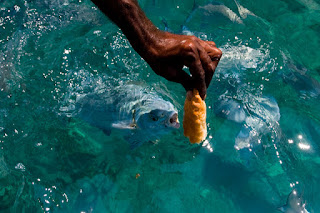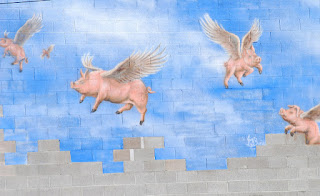I blog about editing, proofreading, and the English language.
Comments and suggestions are welcome.
Many of the phrasal verbs and idioms addressed in this blog were highlighted during an English conversation class I ran a few years ago. I’m grateful to those who attended this for helping me see my native language from a different perspective.
Most of the examples used are quotes from news articles. Click on the links (in yellow) to view the full article.
Thursday, 28 February 2019
GALORE
The word “galore” means in abundance or in huge quantities and is derived from the Irish “go leór” meaning “to sufficiency, or enough.” [1] It is placed after the word it describes.
Wednesday, 27 February 2019
KEEP AN EYE ON (OPEN OR OUT FOR) SOMETHING
If you keep an eye on something, you observe it carefully.
For example:
“The mahouts are stoking the campfire, and on the hillside opposite, four elephants – matriarch Thong Kam and three younger ones – keep a benign eye on the handful of humans temporarily sharing their forest home.”
“Parents are being encouraged to keep an eye on what their kids watch on YouTube after sick cartoons were found online.”
If, however, you keep an eye open or out for something, you watch for it.
“When this doesn’t happen, anxiety is raised for the children and the parents who have to keep an eye open for any messages or phone calls in case they haven’t got on the bus.”
“People living in Norfolk are being advised to keep an eye out for a cold caller carrying a large holdall.”
Photo credit: Alper Çuğun
For example:
“The mahouts are stoking the campfire, and on the hillside opposite, four elephants – matriarch Thong Kam and three younger ones – keep a benign eye on the handful of humans temporarily sharing their forest home.”
“Parents are being encouraged to keep an eye on what their kids watch on YouTube after sick cartoons were found online.”
If, however, you keep an eye open or out for something, you watch for it.
“When this doesn’t happen, anxiety is raised for the children and the parents who have to keep an eye open for any messages or phone calls in case they haven’t got on the bus.”
“People living in Norfolk are being advised to keep an eye out for a cold caller carrying a large holdall.”
Photo credit: Alper Çuğun
Tuesday, 26 February 2019
DOWN TO THE WIRE
The phrase “down to the wire” is used to describe a situation whose outcome is not decided until the last minute.
This expression is related to horse racing and originated in the late 1800s in the US, where racecourses have a wire stretched across and above the finishing line; in a race that goes down to the wire, the horses are neck and neck right to the end [1].
Examples of use:
“As the United Kingdom’s labyrinthine Brexit crisis goes down to the wire, May is making a last-ditch effort to get changes to the divorce package but lawmakers may try on Wednesday to grab control of Brexit in a series of parliamentary votes.”
“The Royals had some gilt edged chances late on but couldn’t take them and it’s looking more and more likely their relegation fight will go down to the wire.”
[1] Cresswell, Julia. “wire” in The Oxford Dictionary of Word Origins. Oxford University Press, 2009.
Photo credit: Donnie Ray Jones
This expression is related to horse racing and originated in the late 1800s in the US, where racecourses have a wire stretched across and above the finishing line; in a race that goes down to the wire, the horses are neck and neck right to the end [1].
Examples of use:
“As the United Kingdom’s labyrinthine Brexit crisis goes down to the wire, May is making a last-ditch effort to get changes to the divorce package but lawmakers may try on Wednesday to grab control of Brexit in a series of parliamentary votes.”
“The Royals had some gilt edged chances late on but couldn’t take them and it’s looking more and more likely their relegation fight will go down to the wire.”
“But the decision went down to the wire after the Tory opposition attempted to vote down the budget.”
Photo credit: Donnie Ray Jones
Monday, 25 February 2019
NIP IN THE BUD
To nip something in the bud is to end it in its early stages, before it becomes a serious problem.
“‘We want to nip this in the bud and are looking at a number of ways including seeing if a by-law can be brought in to keep dogs on leads,’ said Mr Wildman.”
“Then there was the parrot who had picked out all of his own feathers, due to stress because he was being kept in the wrong environment. If the bird had been taken to a specialist at an early stage, measures could have been put in place to nip this in the bud.”
“The Scottish Government and NHS Scotland ‘Flower’ campaign, is asking women to nip cervical cancer in the bud by getting the test done.”
This phrase relates to the horticultural practice of pinching out plant buds to prevent growth of shoots or flowers. It dates from the early 1600s [1].
It also features in the song “One Day More” from the movie “Les Miserables.”
[1] “nip” in Oxford Dictionary of English Idioms, edited by Ayto, John. Oxford University Press, 2009.
Photo credit: Susan Williams (Creative Commons)
Updated Thursday 12 March 2020
“‘We want to nip this in the bud and are looking at a number of ways including seeing if a by-law can be brought in to keep dogs on leads,’ said Mr Wildman.”
“Then there was the parrot who had picked out all of his own feathers, due to stress because he was being kept in the wrong environment. If the bird had been taken to a specialist at an early stage, measures could have been put in place to nip this in the bud.”
“The Scottish Government and NHS Scotland ‘Flower’ campaign, is asking women to nip cervical cancer in the bud by getting the test done.”
This phrase relates to the horticultural practice of pinching out plant buds to prevent growth of shoots or flowers. It dates from the early 1600s [1].
It also features in the song “One Day More” from the movie “Les Miserables.”
“One more day till revolution,
We will nip it in the bud!”
[1] “nip” in Oxford Dictionary of English Idioms, edited by Ayto, John. Oxford University Press, 2009.
Photo credit: Susan Williams (Creative Commons)
Updated Thursday 12 March 2020
Sunday, 24 February 2019
LAST-DITCH
A last-ditch action is performed as a final, often hopeless, attempt to achieve something.
Examples:
“She also revealed that former PM David Cameron had made a last-ditch attempt to stop the trio from quitting.”
“Theresa May travels to Brussels on Wednesday in a last-ditch attempt to secure major concessions on her Brexit deal from EU officials.”
“Save Falls of Clyde-International has launched a gofundme fundraiser in an a last ditch effort to stop the disposal of the 140-year-old tall ship Falls of Clyde, currently based in Hawaii.”
This expression apparently originates from a remark attributed to King William III (1650–1702), who, when asked whether he could not see that his country was lost, replied: “There is one way never to see it lost, and that is to die in the last ditch” [1].
[1] “die” in Oxford Dictionary of English Idioms, edited by Ayto, John. Oxford University Press, 2009.
Photo credit: Tom Ramsey
Examples:
“She also revealed that former PM David Cameron had made a last-ditch attempt to stop the trio from quitting.”
“Theresa May travels to Brussels on Wednesday in a last-ditch attempt to secure major concessions on her Brexit deal from EU officials.”
“Save Falls of Clyde-International has launched a gofundme fundraiser in an a last ditch effort to stop the disposal of the 140-year-old tall ship Falls of Clyde, currently based in Hawaii.”
This expression apparently originates from a remark attributed to King William III (1650–1702), who, when asked whether he could not see that his country was lost, replied: “There is one way never to see it lost, and that is to die in the last ditch” [1].
[1] “die” in Oxford Dictionary of English Idioms, edited by Ayto, John. Oxford University Press, 2009.
Photo credit: Tom Ramsey
Saturday, 23 February 2019
FLY-TIPPING
Fly-tipping is illegal dumping of rubbish. This expression is thought to derive from the phrase “on the fly,” meaning while in motion or in progress, perhaps because such rubbish is usually dumped from a vehicle. It apparently originated in the 1960s [1].
Examples:
“The councillors believe that local fly-tipping has increased since charges for certain building and DIY waste were introduced at local tips in February, 2018.”
“A Welsh Government report said more than 60% of fly-tipping incidents originate from domestic properties - often the householder did not fly-tip themselves but did not carry out the appropriate checks to meet their duty of care, and allowed an unauthorised person to take it away.”
“Every time someone leaves waste on the street, dumped in an alleyway, at the end of the road, outside someone else’s house or even outside their own home, it counts as fly-tipping and is a crime.”
Fly-tipping is a huge problem in the UK. The National Fly-tipping Prevention Group (NFTPG) is a group of organisations that work together to deal with fly-tipping.
[1] “fly-tip” in Oxford Dictionary of English, edited by Stevenson, Angus. Oxford University Press, 2010.
Photo credit: Philip Bragg
Examples:
“The councillors believe that local fly-tipping has increased since charges for certain building and DIY waste were introduced at local tips in February, 2018.”
“A Welsh Government report said more than 60% of fly-tipping incidents originate from domestic properties - often the householder did not fly-tip themselves but did not carry out the appropriate checks to meet their duty of care, and allowed an unauthorised person to take it away.”
“Every time someone leaves waste on the street, dumped in an alleyway, at the end of the road, outside someone else’s house or even outside their own home, it counts as fly-tipping and is a crime.”
Fly-tipping is a huge problem in the UK. The National Fly-tipping Prevention Group (NFTPG) is a group of organisations that work together to deal with fly-tipping.
[1] “fly-tip” in Oxford Dictionary of English, edited by Stevenson, Angus. Oxford University Press, 2010.
Photo credit: Philip Bragg
Friday, 22 February 2019
COLD TURKEY
To go cold turkey is to suddenly and completely give up something to which you are addicted.
It was originally used with reference to addictive drugs. The phrase likens the goose flesh or goose pimples caused by shivering and sweating, a side-effect of sudden drug withdrawal, to the flesh of a dead plucked turkey [1].
Examples:
“In rehab, I was made to go full cold turkey – no methadone, no tranquillisers, no sleeping pills – as the ethos of the centre was to give you an experience you wouldn’t forget.”
“Around four in every five have what doctors call ‘neonatal withdrawal symptoms’ - meaning they have developed a physical dependency on the drug, and essentially have to go cold turkey.”
The phrase is now also used in relation to suddenly giving up other habits.
“I went cold turkey on buying clothes – and learned that it will take more than taxes to slow the march of fast fashion”
“You’re addicted to plastic. Can you go cold turkey?”
[1] “cold” in Oxford Dictionary of English Idioms, edited by Ayto, John. Oxford University Press, 2009.
Photo credit: grevillea
It was originally used with reference to addictive drugs. The phrase likens the goose flesh or goose pimples caused by shivering and sweating, a side-effect of sudden drug withdrawal, to the flesh of a dead plucked turkey [1].
Examples:
“In rehab, I was made to go full cold turkey – no methadone, no tranquillisers, no sleeping pills – as the ethos of the centre was to give you an experience you wouldn’t forget.”
“Around four in every five have what doctors call ‘neonatal withdrawal symptoms’ - meaning they have developed a physical dependency on the drug, and essentially have to go cold turkey.”
The phrase is now also used in relation to suddenly giving up other habits.
“I went cold turkey on buying clothes – and learned that it will take more than taxes to slow the march of fast fashion”
[1] “cold” in Oxford Dictionary of English Idioms, edited by Ayto, John. Oxford University Press, 2009.
Photo credit: grevillea
Thursday, 21 February 2019
WATER DOWN
Something that is watered down is diluted with water. This phrase is used idiomatically to describe something that is made weaker with respect to its content, force or value.
Examples:
“Large retailers have been accused of trying to water down a proposed scheme to improve rates of bottle recycling.”
“Ministers have been warned not to water down animal protection laws after Brexit, as a poll found eight in 10 people believed they should be maintained or strengthened when Britain leaves the European Union (EU).”
“The speech will also seek to convince his European counterparts, who have watered down many of his Sorbonne proposals since 2017, to start thinking of the EU as a tougher geopolitical player in a ruthless world.”
This idiom is believed to date from the 1800s [1].
[1] “water down” in The American Heritage Dictionary of Idioms, by Christine Ammer. 2nd ed. Houghton Mifflin, 2013.
Photo credit: Kristie
Examples:
“Large retailers have been accused of trying to water down a proposed scheme to improve rates of bottle recycling.”
“Ministers have been warned not to water down animal protection laws after Brexit, as a poll found eight in 10 people believed they should be maintained or strengthened when Britain leaves the European Union (EU).”
“The speech will also seek to convince his European counterparts, who have watered down many of his Sorbonne proposals since 2017, to start thinking of the EU as a tougher geopolitical player in a ruthless world.”
This idiom is believed to date from the 1800s [1].
[1] “water down” in The American Heritage Dictionary of Idioms, by Christine Ammer. 2nd ed. Houghton Mifflin, 2013.
Photo credit: Kristie
Wednesday, 20 February 2019
PULL THE WOOL OVER SOMEONE’S EYES
To pull the wool over someone’s eyes is to deceive them, especially by telling lies.
Examples:
“Common tactics fraudsters use to pull the wool over people’s eyes include uploading fake photos to their online profiles, claiming that they’re working abroad and masquerading as military personnel stationed overseas.”
“As for how all these women managed to pull the wool over a gullible public’s eyes, the scholar Dick Berents writes, ‘it was apparently extremely difficult to obtain certainty about anything in 15th-century society, even about a person’s death.’”
“His own favourite hoax came in 1980, after he had pulled the wool over the eyes of the New York Times by faking his own death at the Sundance ski resort.”
Apparently, the first person described as trying to pull the wool over someone’s eyes was an American lawyer, in the mid 19th century, and the “wool” was a lawyer’s curly wig [1].
The song “You Can’t Pull the Wool over My Eyes” was written by Ager Milton, Charles Newman and Murray Mencher [2].
[1] Cresswell, Julia. “wool” in The Oxford Dictionary of Word Origins. Oxford University Press, 2009.
[2] “Ager Milton” in Encyclopedia of Popular Music, edited by Larkin, Colin. Oxford University Press, 2006.
Photo credit: Judith
Examples:
“Common tactics fraudsters use to pull the wool over people’s eyes include uploading fake photos to their online profiles, claiming that they’re working abroad and masquerading as military personnel stationed overseas.”
“As for how all these women managed to pull the wool over a gullible public’s eyes, the scholar Dick Berents writes, ‘it was apparently extremely difficult to obtain certainty about anything in 15th-century society, even about a person’s death.’”
“His own favourite hoax came in 1980, after he had pulled the wool over the eyes of the New York Times by faking his own death at the Sundance ski resort.”
Apparently, the first person described as trying to pull the wool over someone’s eyes was an American lawyer, in the mid 19th century, and the “wool” was a lawyer’s curly wig [1].
The song “You Can’t Pull the Wool over My Eyes” was written by Ager Milton, Charles Newman and Murray Mencher [2].
[1] Cresswell, Julia. “wool” in The Oxford Dictionary of Word Origins. Oxford University Press, 2009.
[2] “Ager Milton” in Encyclopedia of Popular Music, edited by Larkin, Colin. Oxford University Press, 2006.
Photo credit: Judith
Tuesday, 19 February 2019
A PLUM JOB



A plum job is one that is highly desirable.
For example:
“I have a feeling it became a plum job after the second world war, when men came back from fighting.”
“Nathan Myhrvold quit the plum job of chief technology officer at Microsoft and went on to pursue interests in cookery, inventions, volcanology and wildlife photography.”
“Could there be a more plum job than being a librarian or the owner of a book store, surrounded by books every day?”
The word “plum” is also used to describe other desirable things.
e.g. “So let this be a lesson to those of you who think you’ve spotted a plum deal on Amazon: If it seems too good to be true, especially on a new game, then there’s a good chance it is.”
One may wonder what is so special about plums. Although they are not currently particularly popular, this phrase dates from the mid-nineteenth century, when choice was more limited and plums were more valued [1].
[1] Ayto, John. “plum” in The Diner’s Dictionary. Oxford University Press, 2012.
Photo credit: Linda Watson
Monday, 18 February 2019
CRY WOLF
To cry wolf is to call for help when it’s not required, which can result in not being believed when help is subsequently needed.
This idiom refers to the fable of the boy who cried wolf, taken from Aesop’s Fables:
“A Shepherd-boy, who watched a flock of sheep near a village, brought out the villagers three or four times by crying out, ‘Wolf! Wolf!’ and when his neighbours came to help him, laughed at them for their pains. The Wolf, however, did truly come at last. The Shepherd-boy, now really alarmed, shouted in an agony of terror : ‘Pray, do come and help me ! the Wolf is killing the sheep !’ but no one paid any heed. to his cries, nor rendered any assistance. The Wolf, having no cause of fear, took it easily, and lacerated or destroyed the whole flock. There is no believing a liar, even when he speaks the truth.”
(Click on the link above to obtain a free copy of this book.)
Examples of use:
“‘In the context of the summer of 2018, this is definitely not a case of crying wolf, raising a false alarm: the wolves are now in sight,’ said Phil Williamson, climate researcher at the University of East Anglia.”
“But pro-Brexit campaigners accuse him of ‘crying wolf’ before the 2016 referendum, when he predicted voting to leave the EU could trigger a recession.”
“The following year she told officers not to ‘cry wolf’ over cuts to the police force.”
The song “Cry Wolf” featured in the album “Scoundrel Days” (1986) by Norwegian band A-ha.
Photo credit: Orest Ukrainsky
This idiom refers to the fable of the boy who cried wolf, taken from Aesop’s Fables:
“A Shepherd-boy, who watched a flock of sheep near a village, brought out the villagers three or four times by crying out, ‘Wolf! Wolf!’ and when his neighbours came to help him, laughed at them for their pains. The Wolf, however, did truly come at last. The Shepherd-boy, now really alarmed, shouted in an agony of terror : ‘Pray, do come and help me ! the Wolf is killing the sheep !’ but no one paid any heed. to his cries, nor rendered any assistance. The Wolf, having no cause of fear, took it easily, and lacerated or destroyed the whole flock. There is no believing a liar, even when he speaks the truth.”
(Click on the link above to obtain a free copy of this book.)
Examples of use:
“‘In the context of the summer of 2018, this is definitely not a case of crying wolf, raising a false alarm: the wolves are now in sight,’ said Phil Williamson, climate researcher at the University of East Anglia.”
“But pro-Brexit campaigners accuse him of ‘crying wolf’ before the 2016 referendum, when he predicted voting to leave the EU could trigger a recession.”
“The following year she told officers not to ‘cry wolf’ over cuts to the police force.”
The song “Cry Wolf” featured in the album “Scoundrel Days” (1986) by Norwegian band A-ha.
Photo credit: Orest Ukrainsky
Sunday, 17 February 2019
EYES IN THE BACK OF YOUR HEAD
To have eyes in the back of your head is to know what is going on around you even when you cannot see it.
Examples of use:
“You have to have eyes in the back of your head, because people want to nick your possessions.”
“It’s probably a good thing for the Chancellor that he isn’t blessed with having a pair of eyes in the back of his head.”
“You have to have eyes in the back of your head as you need to make sure there’s no one hanging off the back of the helicopter!”
Photo credit: Grégoire Lannoy
Examples of use:
“You have to have eyes in the back of your head, because people want to nick your possessions.”
“It’s probably a good thing for the Chancellor that he isn’t blessed with having a pair of eyes in the back of his head.”
“You have to have eyes in the back of your head as you need to make sure there’s no one hanging off the back of the helicopter!”
Photo credit: Grégoire Lannoy
Saturday, 16 February 2019
PLAY SECOND FIDDLE
The second fiddle (violin) is the second fiddle part in an orchestra or ensemble, or the person who plays this.
We use this term idiomatically to mean play a subordinate role to someone or something else, in a way that is considered demeaning.
Examples of use:
“New plan will see Limerick play second fiddle to Cork”
“But Skrtel snubbed the offer because he didn’t want to play second-fiddle to Gerard Pique and Samuel Umtiti.”
“Rosamund Pike says actors won't ‘play second fiddle’ to actresses”
Photo credit: Photo Phiend
We use this term idiomatically to mean play a subordinate role to someone or something else, in a way that is considered demeaning.
Examples of use:
“New plan will see Limerick play second fiddle to Cork”
“But Skrtel snubbed the offer because he didn’t want to play second-fiddle to Gerard Pique and Samuel Umtiti.”
“Rosamund Pike says actors won't ‘play second fiddle’ to actresses”
Photo credit: Photo Phiend
Friday, 15 February 2019
BACKWARD IN COMING FORWARD
To be backward in coming forward is to be shy and reluctant to express opinions or wishes.
e.g. “British theatre audiences are backward in coming forward”
Although this phrase appears above in the positive sense, it’s more commonly used in the negative.
e.g. “He was a genuine working-class hero: down-to-earth, honest, modest, full of love and understanding, but never backward in coming forward to defend his principles of social and political justice.”
“But while none of the protagonists are media-shy, or backward in coming forward when it comes to defending their corner, sadly what goes on in Washington this week will likely stay in Washington.”
“From her early days as a Californian flower child to her time as a suspender-clad rock diva, Cher has never been backward in coming forward.”
Photo credit: Rob
e.g. “British theatre audiences are backward in coming forward”
Although this phrase appears above in the positive sense, it’s more commonly used in the negative.
e.g. “He was a genuine working-class hero: down-to-earth, honest, modest, full of love and understanding, but never backward in coming forward to defend his principles of social and political justice.”
“But while none of the protagonists are media-shy, or backward in coming forward when it comes to defending their corner, sadly what goes on in Washington this week will likely stay in Washington.”
“From her early days as a Californian flower child to her time as a suspender-clad rock diva, Cher has never been backward in coming forward.”
Photo credit: Rob
Thursday, 14 February 2019
CALL A SPADE A SPADE
Someone who calls a spade a spade speaks plainly without avoiding unpleasant or embarrassing issues.
Examples of use:
“To call a spade a spade, it’s a very milky coffee (more so than a latte) with no seasonal flavouring added.”
“Described by her colleagues as a no-nonsense professional ‘who calls a spade a spade’, she reportedly transcended her rheumatology nursing duties and became somewhat of a counsellor for arthritis patients.”
“Love her or loathe her, Lily Allen has always been a pop star who’s called a spade a spade.”
This phrase is believed to originate from the 16th century. Apparently, were it not for a couple of translation errors, this phrase would be “call a bowl a bowl,” which was the original Greek phrase. The Greek word for bowl was mistranslated into Latin by Erasmus as “mattock,” which was mistranslated into English by Nicholas Udall in 1542 as “spade.”
[1] “spade” in The Oxford Dictionary of Phrase and Fable. Oxford University Press, 2005.
[2] “call a spade a spade” in The American Heritage Dictionary of Idioms, by Christine Ammer. 2nd ed. Houghton Mifflin, 2013.
Photo credit: Michael Simmons
Examples of use:
“To call a spade a spade, it’s a very milky coffee (more so than a latte) with no seasonal flavouring added.”
“Described by her colleagues as a no-nonsense professional ‘who calls a spade a spade’, she reportedly transcended her rheumatology nursing duties and became somewhat of a counsellor for arthritis patients.”
“Love her or loathe her, Lily Allen has always been a pop star who’s called a spade a spade.”
This phrase is believed to originate from the 16th century. Apparently, were it not for a couple of translation errors, this phrase would be “call a bowl a bowl,” which was the original Greek phrase. The Greek word for bowl was mistranslated into Latin by Erasmus as “mattock,” which was mistranslated into English by Nicholas Udall in 1542 as “spade.”
[1] “spade” in The Oxford Dictionary of Phrase and Fable. Oxford University Press, 2005.
[2] “call a spade a spade” in The American Heritage Dictionary of Idioms, by Christine Ammer. 2nd ed. Houghton Mifflin, 2013.
Photo credit: Michael Simmons
Wednesday, 13 February 2019
THE POT CALLING THE KETTLE BLACK
The phrase “the pot calling the kettle black” indicates that a criticism aimed at someone else could apply equally to the criticiser.
This expression dates from the early 1600s when cooking was done on an open hearth, which blackened nearly all the utensils used [1], so the pot would have been as black as the kettle.
Examples of use:
“In 1820, George, who had just become King George IV, vehemently opposed Caroline becoming Queen and so sued her for divorce based on infidelity (which was the pot calling the kettle ‘black’).”
“Furthermore, he told the court, RBS itself had provided services to “many of these fraudsters” — a case, he added, of ‘the pot calling the kettle black’.”
“It was the pot calling the kettle black – but there was also truth in the barb.”
[1] “pot calling the kettle black, the” in The American Heritage Dictionary of Idioms, by Christine Ammer. 2nd ed. Houghton Mifflin, 2013.
Photo credit: PETER M
This expression dates from the early 1600s when cooking was done on an open hearth, which blackened nearly all the utensils used [1], so the pot would have been as black as the kettle.
Examples of use:
“In 1820, George, who had just become King George IV, vehemently opposed Caroline becoming Queen and so sued her for divorce based on infidelity (which was the pot calling the kettle ‘black’).”
“Furthermore, he told the court, RBS itself had provided services to “many of these fraudsters” — a case, he added, of ‘the pot calling the kettle black’.”
“It was the pot calling the kettle black – but there was also truth in the barb.”
[1] “pot calling the kettle black, the” in The American Heritage Dictionary of Idioms, by Christine Ammer. 2nd ed. Houghton Mifflin, 2013.
Photo credit: PETER M
Tuesday, 12 February 2019
WERE YOU BORN IN A BARN?
This phrase translates roughly as “you left the door open – please close it.” It’s frequently said by parents to their children, even though most of us know where our children were born, and in most cases it wasn’t in a barn.
It’s claimed that the original form of this phrase was “were you born in Bardney.” Apparently, in AD 679, the monks of Bardney Abbey in Lincolnshire were asked to house the bones of King Oswald but refused, as he had occupied their kingdom by force around forty years ago. The bones were left overnight in a wagon outside the abbey walls. However, a bright light from heaven shone down to illuminate the wagon and the bones within it and remained there for much of the night. The monks interpreted this as a sign and repented, requesting that the bones be housed thereafter in the abbey. As a sign of their repentance, they removed the previously closed doors of the monastery walls. This led to people who left doors open being asked if they were born in Bardney [1].
A simpler explanation, offered in the Urban Dictionary, is that the phrase refers to barn doors being left open to let animals in and out.
[1] Amazing Deeds of God: Volume I Great Miracles From The Centuries, Daniel Curry (2013), USA
Photo credit: The.Grim.North
A simpler explanation, offered in the Urban Dictionary, is that the phrase refers to barn doors being left open to let animals in and out.
[1] Amazing Deeds of God: Volume I Great Miracles From The Centuries, Daniel Curry (2013), USA
Photo credit: The.Grim.North
Monday, 11 February 2019
EASILY CONFUSED WORDS – FLUORESCENCE AND FLUORESCENT
This post is mainly aimed at scientific writers. The words fluorescent and fluorescence are frequently mixed up in scientific papers, and I suspect this is because, according to the dictionary, “fluorescent” is an adjective, while “fluorescence” is a noun.
The adjective “fluorescent,” however, should only be used to describe something that emits fluorescence. If we want to indicate that something relates to fluorescence then it is conventional to use the noun “fluorescence” as an adjective.
For example, we would write “fluorescent label,” “fluorescent molecule” and “fluorescent sensor,” since the label, molecule and sensor all emit fluorescence.
However, we would write “fluorescence intensity,” “fluorescence measurement” and “fluorescence microscopy,” as the intensity, measurement and microscopy relate to fluorescence but do not emit it.
If in doubt, you can check both forms of a phrase in Google Scholar. For instance, at the time of writing, “fluorescence measurement” returned 84,000 hits, while “fluorescent measurement” returned only 5,900.
Photo credit: James St. John
The adjective “fluorescent,” however, should only be used to describe something that emits fluorescence. If we want to indicate that something relates to fluorescence then it is conventional to use the noun “fluorescence” as an adjective.
For example, we would write “fluorescent label,” “fluorescent molecule” and “fluorescent sensor,” since the label, molecule and sensor all emit fluorescence.
However, we would write “fluorescence intensity,” “fluorescence measurement” and “fluorescence microscopy,” as the intensity, measurement and microscopy relate to fluorescence but do not emit it.
If in doubt, you can check both forms of a phrase in Google Scholar. For instance, at the time of writing, “fluorescence measurement” returned 84,000 hits, while “fluorescent measurement” returned only 5,900.
Photo credit: James St. John
Sunday, 10 February 2019
MY WAY OR THE HIGHWAY
The phrase “my way or the highway” indicates that you must accept the speaker’s decision or leave – it’s generally said by or about someone who doesn’t believe in negotiating!
Examples of use:
“New Notts County boss Harry Kewell says it’s my way or the highway”
“It is not just O’Grady who has been on the receiving end of the disdainful ‘I’m the boss and it’s my way or the highway’ stance that May has taken up to this point.”
“All engineering is compromise and I’ve never had a problem with adapting my work style to the particular requirements of a company, although I have worked with one or two people who appear to have a ‘my way or the highway’ attitude – something that’s always struck me as being rather arrogant and a little short sighted.”
Photo credit: Mike Norton
“New Notts County boss Harry Kewell says it’s my way or the highway”
“It is not just O’Grady who has been on the receiving end of the disdainful ‘I’m the boss and it’s my way or the highway’ stance that May has taken up to this point.”
“All engineering is compromise and I’ve never had a problem with adapting my work style to the particular requirements of a company, although I have worked with one or two people who appear to have a ‘my way or the highway’ attitude – something that’s always struck me as being rather arrogant and a little short sighted.”
Photo credit: Mike Norton
Saturday, 9 February 2019
SPINNING OUT
If you spin something out, you prolong it or make it last as long as possible.
This idiom apparently dates back to the 1600s and refers to drawing out a thread by spinning [1].
Examples of use:
“Amanda Holden plans on ‘spinning out’ Britain’s Got Talent judging role for a while yet”
“No doubt, this earns Mr Robbins lots of murmured compliments in the elevated circles in which he moves — ‘Well done, Olly, let’s spin it out a few more years, old boy’.”
“Three gigantic mutated animals against Dwayne ‘The Rock’ Johnson is not a fair fight, but director Brad Peyton spins it out for nearly two hours in Rampage, a film twice as preposterous as it is exhilarating, yet twice as exhilarating as any other movie you can think of in which a gorilla, a wolf and an alligator-armadillo hybrid attempt to flatten downtown Chicago.”
The term “spin out” (or “spin off”) is also used to describe the creation of a new company or other organisation from an existing one.
e.g. “Back in 2014, eBay revealed plans to spin out its payments business, PayPal, into a standalone company.”
We might also say that a vehicle or situation spins out of control.
e.g. “This caused the vehicle to spin out of control, colliding with a large hedge.”
[1] “spin out” In The American Heritage Dictionary of Idioms, by Christine Ammer. 2nd ed. Houghton Mifflin, 2013.
Photo credit: Knight Lightness
This idiom apparently dates back to the 1600s and refers to drawing out a thread by spinning [1].
“Amanda Holden plans on ‘spinning out’ Britain’s Got Talent judging role for a while yet”
“No doubt, this earns Mr Robbins lots of murmured compliments in the elevated circles in which he moves — ‘Well done, Olly, let’s spin it out a few more years, old boy’.”
“Three gigantic mutated animals against Dwayne ‘The Rock’ Johnson is not a fair fight, but director Brad Peyton spins it out for nearly two hours in Rampage, a film twice as preposterous as it is exhilarating, yet twice as exhilarating as any other movie you can think of in which a gorilla, a wolf and an alligator-armadillo hybrid attempt to flatten downtown Chicago.”
The term “spin out” (or “spin off”) is also used to describe the creation of a new company or other organisation from an existing one.
e.g. “Back in 2014, eBay revealed plans to spin out its payments business, PayPal, into a standalone company.”
We might also say that a vehicle or situation spins out of control.
e.g. “This caused the vehicle to spin out of control, colliding with a large hedge.”
[1] “spin out” In The American Heritage Dictionary of Idioms, by Christine Ammer. 2nd ed. Houghton Mifflin, 2013.
Photo credit: Knight Lightness
Friday, 8 February 2019
TODAY’S NEW WORD – AMIGURUMI
This one came not from my editing but from my husband, who produced this yesterday.
Amigurumi hasn’t reached the main online dictionaries yet, but a Google search currently returns over 45 million hits. It’s defined in Wikipedia as the Japanese art of knitting or crocheting small, stuffed yarn creatures. The word is apparently a portmanteau (combination) of the Japanese words “ami” (crocheted or knitted) and “nuigurumi” (stuffed doll).
Photo credit: Paul Watson
GOING SPARE
To “go spare” is to become extremely angry, frustrated or upset.
Examples of use:
“Eddie Cook, 58, said: ‘I told my wife I would be home by 8 - I think she’ll go spare if I’m any later than that.’”
“I’ve never actually heard of a librarian going spare over an overdue book, nor have I experienced it.”
“When the decision was handed down, some farmers and commentators and politicians went spare.”
An explanation for this sense of “go spare” is offered by The Word Detective. He states that in the 1940s, it was slang for losing one’s job, and that the above meaning appeared in the 1950s, being a normal emotional reaction to becoming unemployed.
We also say that something is “going spare” if it’s no longer required.
e.g. “Meanwhile Leeds had 524 places going spare, and Liverpool had 591.”
Photo credit: Si Hammond
Examples of use:
“Eddie Cook, 58, said: ‘I told my wife I would be home by 8 - I think she’ll go spare if I’m any later than that.’”
“I’ve never actually heard of a librarian going spare over an overdue book, nor have I experienced it.”
“When the decision was handed down, some farmers and commentators and politicians went spare.”
An explanation for this sense of “go spare” is offered by The Word Detective. He states that in the 1940s, it was slang for losing one’s job, and that the above meaning appeared in the 1950s, being a normal emotional reaction to becoming unemployed.
We also say that something is “going spare” if it’s no longer required.
e.g. “Meanwhile Leeds had 524 places going spare, and Liverpool had 591.”
Photo credit: Si Hammond
Thursday, 7 February 2019
SIMILAR WORDS – RENDITION AND RENDERING
The words “rendering” and “rendition” have several uses; some apply to both words and others to only one of them.
Both “rendering” and “rendition” can be used to describe a performance.
e.g. “Talia Robens, 14 years old, gave a lovely rendering of ‘Everything I Know’ from In The Heights.”
“He won the ‘vocal solo hits from the charts’ contest for his superb rendition of ‘All of Me’ by John Legend.”
Both words can also be used to describe a visual or artistic impression of something.
e.g. “As for Carter’s own contributions — which include a papier-mâché rendering of Kahlo’s eerie 1946 self-portrait, ‘The Wounded Deer’ — he won’t say in advance where they’ll be on view.”
“Tolkien conceptualized The Hobbit with a single opening line—‘In a hole in the ground there lived a hobbit’—accompanied by his rendition of Thrór’s Map, which the protagonists would follow on their quest (and for a couple of years, McQuillen noted, that was as far as Tolkien got).”
Both words can be used to describe a translation.
“It is perhaps the latter rendering of the idiom that inspired Nigerian English speakers to replace “silver” with “gold” since gold is more valuable than silver.”
“It’s been said a lie can travel halfway around the world before the truth has a chance to put on its shoes. Or, to use a more modern rendition of the phrase, fake news catches fire before the truth can be used to put it out.”
The word “rendering”, but not “rendition”, can be used to describe a coating of plaster applied to a wall, or the action of applying this.
e.g. “The church architects had recommended rendering the outside to prevent water ingress which was causing severe problems including rotting woodwork, damage to the bell ropes and unsafe conditions.”
“The work left the rendering cracked and in a poor condition, along with paint splashed on her windows, door frames, roof, paving and fence panels and on her neighbour’s car.”
Photo credits: Tekke, Don Gunn
Both “rendering” and “rendition” can be used to describe a performance.
e.g. “Talia Robens, 14 years old, gave a lovely rendering of ‘Everything I Know’ from In The Heights.”
“He won the ‘vocal solo hits from the charts’ contest for his superb rendition of ‘All of Me’ by John Legend.”
Both words can also be used to describe a visual or artistic impression of something.
e.g. “As for Carter’s own contributions — which include a papier-mâché rendering of Kahlo’s eerie 1946 self-portrait, ‘The Wounded Deer’ — he won’t say in advance where they’ll be on view.”
“Tolkien conceptualized The Hobbit with a single opening line—‘In a hole in the ground there lived a hobbit’—accompanied by his rendition of Thrór’s Map, which the protagonists would follow on their quest (and for a couple of years, McQuillen noted, that was as far as Tolkien got).”
Both words can be used to describe a translation.
“It is perhaps the latter rendering of the idiom that inspired Nigerian English speakers to replace “silver” with “gold” since gold is more valuable than silver.”
“It’s been said a lie can travel halfway around the world before the truth has a chance to put on its shoes. Or, to use a more modern rendition of the phrase, fake news catches fire before the truth can be used to put it out.”
The word “rendering”, but not “rendition”, can be used to describe a coating of plaster applied to a wall, or the action of applying this.
e.g. “The church architects had recommended rendering the outside to prevent water ingress which was causing severe problems including rotting woodwork, damage to the bell ropes and unsafe conditions.”
“The work left the rendering cracked and in a poor condition, along with paint splashed on her windows, door frames, roof, paving and fence panels and on her neighbour’s car.”
Photo credits: Tekke, Don Gunn
Wednesday, 6 February 2019
RISE TO THE BAIT
To rise to the bait is to react to provocation (something said or done) by someone exactly as they intended.
This refers to a fish coming to the surface to take bait [1].
Examples of use:
“Actress, comedian and writer Tara Flynn and her husband, scriptwriter Carl Austin rose to the bait and agreed to spend the morning shopping with Peter and getting into the mood.”
“David Cameron has refused to rise to the bait after being subjected to a brutal tongue-lashing from actor Danny Dyer over his part in Brexit.”
“Steve Clarke tells his Kilmarnock defenders not to rise to the bait against Alfredo Morelos”
[1] “rise” In Oxford Dictionary of English Idioms, edited by Ayto, John. Oxford University Press, 2009.
Photo credit: Xi Liu
This refers to a fish coming to the surface to take bait [1].
Examples of use:
“Actress, comedian and writer Tara Flynn and her husband, scriptwriter Carl Austin rose to the bait and agreed to spend the morning shopping with Peter and getting into the mood.”
“David Cameron has refused to rise to the bait after being subjected to a brutal tongue-lashing from actor Danny Dyer over his part in Brexit.”
“Steve Clarke tells his Kilmarnock defenders not to rise to the bait against Alfredo Morelos”
[1] “rise” In Oxford Dictionary of English Idioms, edited by Ayto, John. Oxford University Press, 2009.
Photo credit: Xi Liu
Tuesday, 5 February 2019
FINGERS IN PIES
If we say that someone has a finger in the pie, we mean that they are involved in something, particularly in an interfering or annoying way, while someone who has a finger in every pie is involved in many activities.
The origin of this metaphor, which dates from the late 1500s, appears to have been lost [1].
Examples of use:
“Dave Parker, from New Civil Engineer, today told Radio 4’s Today: ‘The mafia had a very big finger in the pie of the concrete industry back then, charging full price and putting less cement in.’”
“She earned a lot of money and then gave a lot away. She had a finger in every pie.”
“In simple terms, if you have a finger in every pie, you should make money no matter what the markets do.”
[1] “finger in the pie, have a” in The American Heritage Dictionary of Idioms, by Christine Ammer. 2nd ed. Houghton Mifflin, 2013.
Photo credit: Andrew Malone
The origin of this metaphor, which dates from the late 1500s, appears to have been lost [1].
Examples of use:
“Dave Parker, from New Civil Engineer, today told Radio 4’s Today: ‘The mafia had a very big finger in the pie of the concrete industry back then, charging full price and putting less cement in.’”
“She earned a lot of money and then gave a lot away. She had a finger in every pie.”
“In simple terms, if you have a finger in every pie, you should make money no matter what the markets do.”
[1] “finger in the pie, have a” in The American Heritage Dictionary of Idioms, by Christine Ammer. 2nd ed. Houghton Mifflin, 2013.
Photo credit: Andrew Malone
Monday, 4 February 2019
A HORNETS’ NEST
A hornets’ nest is a metaphor for a difficult situation that is likely to provoke hostile reactions.
Note that this should not be written as “hornet’s nest” (although it frequently is) since it belongs to more than one hornet!
Note that this should not be written as “hornet’s nest” (although it frequently is) since it belongs to more than one hornet!
Someone who (metaphorically) stirs up a hornets’ nest causes much argument and/or trouble.
This term apparently dates from the early 1700s [1]. It likens angry people to hornets whose nest has been disturbed.
Examples of use:
“THE BBC has stirred a hornets’ nest with its decision to reverse the manifesto pledge and abandon free television licences for the over-75s”
“The government’s stealth in removing the Owls Head parcel from the list has alarmed conservationists and stirred up a hornets’ nest of protest on social media.”
“Developers have stirred up a hornets’ nest among residents by applying to load and unload lorries for 24 hours a day at a controversial warehouse.”
[1] “stir up a hornets’ nest” In The American Heritage Dictionary of Idioms, by Christine Ammer. 2nd ed. Houghton Mifflin, 2013.
Photo credit: Steve Knight (Creative Commons)
Updated Saturday 14 March 2020
This term apparently dates from the early 1700s [1]. It likens angry people to hornets whose nest has been disturbed.
Examples of use:
“THE BBC has stirred a hornets’ nest with its decision to reverse the manifesto pledge and abandon free television licences for the over-75s”
“The government’s stealth in removing the Owls Head parcel from the list has alarmed conservationists and stirred up a hornets’ nest of protest on social media.”
“Developers have stirred up a hornets’ nest among residents by applying to load and unload lorries for 24 hours a day at a controversial warehouse.”
[1] “stir up a hornets’ nest” In The American Heritage Dictionary of Idioms, by Christine Ammer. 2nd ed. Houghton Mifflin, 2013.
Photo credit: Steve Knight (Creative Commons)
Updated Saturday 14 March 2020
Sunday, 3 February 2019
FALLING OFF LORRIES
Things regularly fall off lorries, in a physical sense.
However, if someone says that something they have acquired fell off the back off a lorry or that they got it off the back of a lorry, they are suggesting that it was probably stolen.
Examples of use:
“Jones points out the beer garden tarmac that fell off the back of a lorry, the bar that was donated by a landlord who had closed his London pub, the logo that was designed for free by a local artist.”
“Purchasing on some websites can be scarcely more reliable than picking up goods off the back of a lorry from someone you met in the pub.”
“If the seller is listed as having zero feedback, then nine times out of 10 it means that his items have probably fallen off the back of a lorry.”
e.g. “A car careered through the central reservation on the A50 after a bathtub fell off a lorry.”
“Work to repair the southbound section of Middleton Boulevard is progressing well following this morning’s incident when a digger fell off a lorry.”
“Work to repair the southbound section of Middleton Boulevard is progressing well following this morning’s incident when a digger fell off a lorry.”
However, if someone says that something they have acquired fell off the back off a lorry or that they got it off the back of a lorry, they are suggesting that it was probably stolen.
Examples of use:
“Jones points out the beer garden tarmac that fell off the back of a lorry, the bar that was donated by a landlord who had closed his London pub, the logo that was designed for free by a local artist.”
“Purchasing on some websites can be scarcely more reliable than picking up goods off the back of a lorry from someone you met in the pub.”
“If the seller is listed as having zero feedback, then nine times out of 10 it means that his items have probably fallen off the back of a lorry.”
Photo credit: Glen Wallace
Saturday, 2 February 2019
FLYING PIGS
The expression “pigs might fly” (or “pigs will fly before”) is used to indicate that something is considered impossible or unlikely.
It may have originated from a 17th century proverb, “pigs fly in the air with their tails forward” [1].
Examples
“In fact, pigs might fly the day Mario Kart Deluxe 8 slips beneath the £35 mark.”
“So much for Coventry wanting to become the Sporting City of Europe — pigs might fly!”
“It’s a concept that has no doubt raised the eyebrows of some of the old guard who think ‘pigs will fly’ before there would be a local market for NT beef.”
[1] “pigs” in The Oxford Dictionary of Phrase and Fable. Oxford University Press, 2005.
Photo credit: Brad Smith (Creative Commons)
Updated Sunday 08 March 20
Photo credit: Brad Smith (Creative Commons)
Updated Sunday 08 March 20
Friday, 1 February 2019
BREAKING THE ICE
To break the ice is to do or say something to relieve shyness or tension at a meeting between strangers.
Ice is physically broken to allow boats to pass through frozen water.
e.g. “Starting Saturday the Coast Guard will be breaking the ice to keep the channels open for navigation.”
However, the current use of this phrase as an idiom began in the 17th century, with ice being used to represent a cold or unfriendly manner at least since the time of Shakespeare [1].
Examples of use:
“Aidan took the students through a number of exercises to break the ice, then gave them tips on how to remember lines more effectively.”
“Mayonnaise or Salad Cream? A very important question and a great way to break the ice at a buffet.”
“When someone moves into your street, it’s a great time to break the ice: invite them for a cup of tea while their kettle is still packed in a box, take them a small moving in gift or just go over to their house and introduce yourself, says Holmes.”
[1] Cresswell, Julia. "ice." In The Oxford Dictionary of Word Origins. : Oxford University Press,, 2009.
Photo credit: Ernesto De Quesada
Ice is physically broken to allow boats to pass through frozen water.
e.g. “Starting Saturday the Coast Guard will be breaking the ice to keep the channels open for navigation.”
However, the current use of this phrase as an idiom began in the 17th century, with ice being used to represent a cold or unfriendly manner at least since the time of Shakespeare [1].
Examples of use:
“Aidan took the students through a number of exercises to break the ice, then gave them tips on how to remember lines more effectively.”
“Mayonnaise or Salad Cream? A very important question and a great way to break the ice at a buffet.”
“When someone moves into your street, it’s a great time to break the ice: invite them for a cup of tea while their kettle is still packed in a box, take them a small moving in gift or just go over to their house and introduce yourself, says Holmes.”
[1] Cresswell, Julia. "ice." In The Oxford Dictionary of Word Origins. : Oxford University Press,, 2009.
Photo credit: Ernesto De Quesada
EASILY CONFUSED WORDS – RATIO AND RATION
I frequently see “ration” in place of “ratio” in scientific papers, and it is misused in many news reports.
A RATIO is a quantitative relationship between two values (such as the ratio of a circle’s circumference to its diameter).
e.g. “In fact, a ratio of roughly 105 male births for every 100 female ones is generally seen as natural and normal.”
“In the US, record-breaking high temperatures are outnumbering record lows by a ratio of two to one.”
“His finance ministry is projecting a tax ratio of just below 12 percent this year.”
A RATION is a fixed amount of something.
e.g. “Lime cordial first originated in the 1700s when it was used by the Royal Navy to ensure sailors received their daily ration of lemon or lime juice.”
Photo credit: Dan Heatherly
A RATIO is a quantitative relationship between two values (such as the ratio of a circle’s circumference to its diameter).
e.g. “In fact, a ratio of roughly 105 male births for every 100 female ones is generally seen as natural and normal.”
“In the US, record-breaking high temperatures are outnumbering record lows by a ratio of two to one.”
“His finance ministry is projecting a tax ratio of just below 12 percent this year.”
A RATION is a fixed amount of something.
e.g. “Lime cordial first originated in the 1700s when it was used by the Royal Navy to ensure sailors received their daily ration of lemon or lime juice.”
Photo credit: Dan Heatherly
Subscribe to:
Comments (Atom)






























